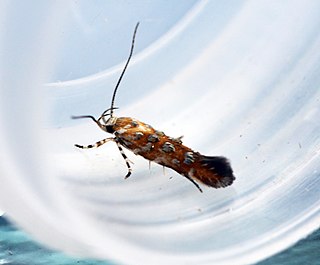
Afghanistan, officially the Islamic Emirate of Afghanistan, is a landlocked country located at the crossroads of Central Asia and South Asia. Referred to as the Heart of Asia, it is bordered by Pakistan to the east and south, Iran to the west, Turkmenistan to the northwest, Uzbekistan to the north, Tajikistan to the northeast, and China to the northeast and east. Occupying 652,864 square kilometers (252,072 sq mi) of land, the country is predominantly mountainous with plains in the north and the southwest, which are separated by the Hindu Kush mountain range. Kabul is the country's largest city and serves as its capital. As of 2021, Afghanistan's population is 40.2 million.

The Taliban, which also refers to itself by its state name, the Islamic Emirate of Afghanistan, is a Deobandi Islamic fundamentalist and Pashtun nationalist militant political movement in Afghanistan. It ruled approximately three-quarters of the country from 1996 to 2001, before being overthrown following the American invasion. It recaptured Kabul on 15 August 2021 following the departure of most coalition forces, after nearly 20 years of insurgency, and currently controls all of the country. However, its government is not recognized by any country. The Taliban government has been criticized for restricting human rights in Afghanistan, including the right of women and girls to work and to have an education.

The population of Afghanistan is around 41 million as of 2023. The nation is composed of a multi-ethnic and multilingual society, reflecting its location astride historic trade and invasion routes between Central Asia, South Asia, and Western Asia. Ethnic groups in the country include Pashtun, Tajik, Hazara, Uzbeks as well as smaller groups such as Nuristanis, Aimaq, Turkmen, Baloch and some others which are less known. Together they make up the contemporary Afghan people.

The War in Afghanistan was an armed conflict from 2001 to 2021. It began when an international military coalition led by the United States launched an invasion of Afghanistan, toppling the Taliban-ruled Islamic Emirate and establishing the internationally recognized Islamic Republic three years later. The conflict ultimately ended with the 2021 Taliban offensive, which overthrew the Islamic Republic, and re-established the Islamic Emirate. It was the longest war in the military history of the United States, surpassing the length of the Vietnam War (1955–1975) by approximately 6 months.

Eteobalea intermediella is a moth of the family Cosmopterigidae. It is native to an area ranging from Central and Southern Europe, east to the Caucasus, Asia Minor, the Near and Middle East towards Central Asia. It is also present in North Africa. It has been introduced to the United States and Canada.

Eteobalea is a genus of moths in the family Cosmopterigidae. It is treated as a synonym of Stagmatophora by some authors.

Eteobalea albiapicella is a moth in the family Cosmopterigidae. It is found in Spain, France, Germany, Switzerland, Austria, Italy, Corsica, the Czech Republic, Slovakia, Hungary, Croatia, Slovenia, Romania, North Macedonia, Greece, southern Russia and Turkey.

Eteobalea anonymella is a moth in the family Cosmopterigidae. It is found in most of Europe, except the Benelux, Great Britain, Ireland, Iceland, Norway and Denmark.
Eteobalea beata is a moth in the family Cosmopterigidae. It is found in France, Spain, Portugal, Italy, Romania, Russia and Turkey.
Eteobalea dohrnii is a moth in the family Cosmopterigidae. It is found in France, Spain, Portugal, Italy, Sardinia, Corsica, Sicily, Malta, Croatia, Greece, Crete and Cyprus. In the east, the range extends to Syria.

Eteobalea isabellella is a moth in the family Cosmopterigidae. It is found in Spain, France, Italy, Corsica, the Balkan Peninsula, Turkey and North Africa.
Eteobalea siciliae is a moth in the family Cosmopterigidae. It is found on Sicily, as well as in Algeria and Turkey.
Eteobalea teucrii is a moth in the family Cosmopterigidae. It is found in Spain and Morocco. Moths in this family are often referred to as "cosmet moths" due to their small size and beautiful patterns on their wings.
Eteobalea thaumatella is a moth in the family Cosmopterigidae. It is found on Malta, the Canary Islands and from North Africa east to the Arabian Peninsula and Iran.
Eteobalea klisieckii is a moth in the family Cosmopterigidae. It is found in Morocco.
Eteobalea tririvella is a moth in the family Cosmopterigidae. It is found in France, Italy, Austria, the Czech Republic, Slovakia, Hungary, Croatia, Romania, Moldova, Ukraine, Russia, Mongolia, Latvia, Estonia, Finland and Sweden.
Eteobalea vinsoni is a moth in the family Cosmopterigidae. It is found on Mauritius and Réunion in the Indian Ocean.

Eteobalea enchrysa is a moth in the family Cosmopterigidae. It is found in North America, where it has been recorded from California.
Eteobalea iridella is a moth in the family Cosmopterigidae. It is found in North America, where it has been recorded from Texas, Washington and California.
Eteobalea sexnotella is a moth in the family Cosmopterigidae. It is found in North America, where it has been recorded from New Hampshire to Florida, as well as in Arkansas, Texas and Ontario.







